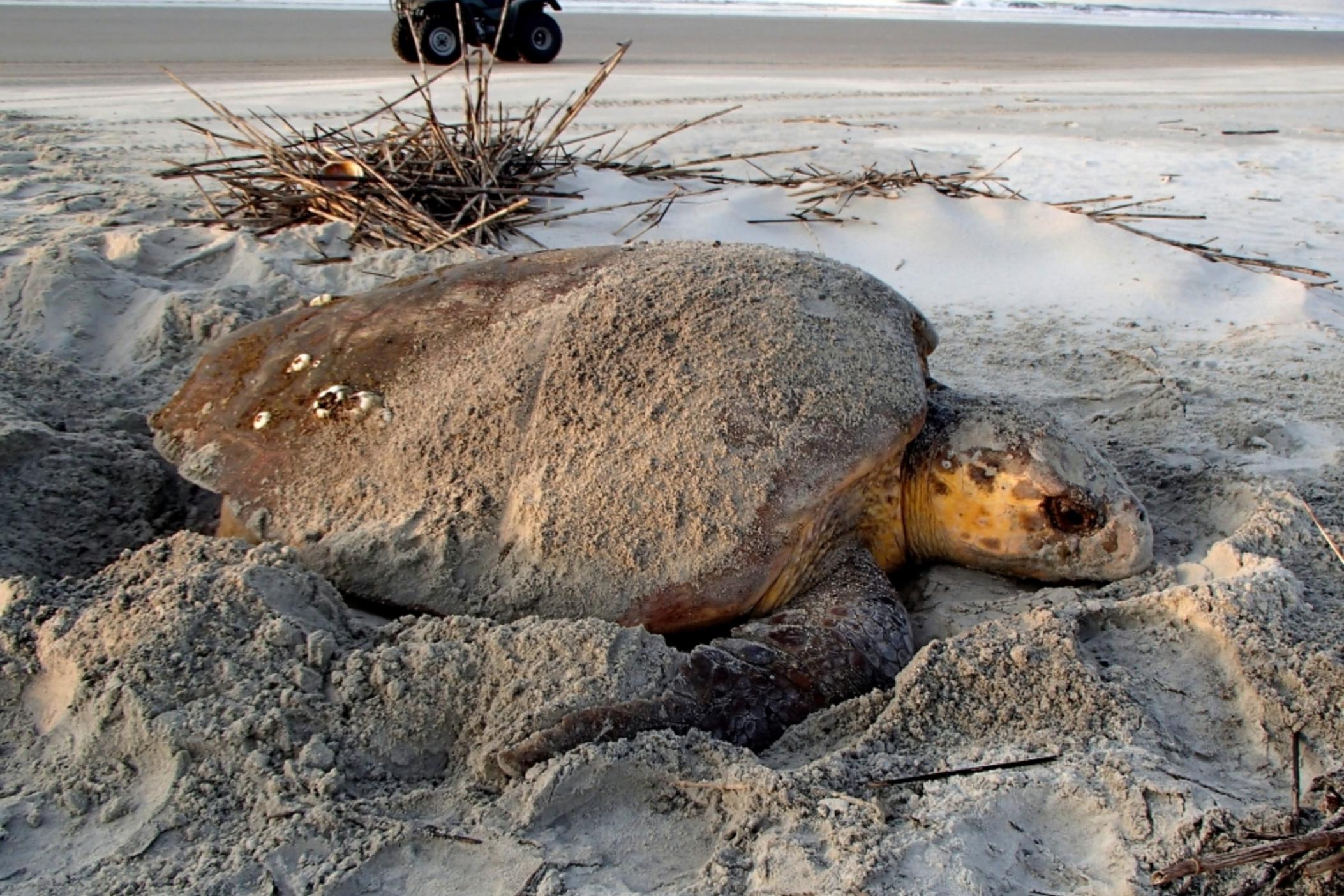Section Branding
Header Content
‘Everyone always wants to find the first nest’: a new sea turtle nesting season begins in Georgia
Primary Content
LISTEN: Loggerheads have begun building their nests along Georgia's barrier islands. GPB's Benjamin Payne reports.
___
Coastal Georgia's sea turtle nesting season is officially underway, as the first loggerhead nest was identified Monday by volunteers on Blackbeard Island.
Located roughly halfway between Savannah and Brunswick, Blackbeard came as an unusual starting point for the four-month period, as the honor usually goes to Cumberland Island — the state's southernmost barrier island, just off the Georgia-Florida border.
“The Georgia Sea Turtle Cooperative is a relatively competitive group, and everyone always wants to find the first nest,” said Georgia Department of Natural Resources wildlife biologist Mark Dodd. “And so, anytime anybody beats Cumberland, it's great.”
Computer modeling indicates that 2023 will see low-to-medium nest production, owing to the natural ebbs and flows of the species' migration patterns.
Last year, Georgia set a modern-day record for loggerhead nests at 4,071. A drop-off usually occurs following such productive seasons, Dodd explained, as sea turtle mothers take some well-deserved vacation.
“It's a really big investment in protein to come here to the Georgia coast, nest five to seven times [and] produce 115 eggs in each nest,” Dodd said. “And so it takes a while to get back in reproductive condition, and so most females take at least one year off, but sometimes two, three or four years off.”
Loggerheads aren't the only sea turtles that the DNR tracks, but they comprise about 99% of the nests seen in Georgia. Other species include the green turtle and the leatherback turtle, but they prefer more tropical climates further south.
As recently as 2004, concerns arose that loggerheads would leave Georgia's beaches altogether, as that year saw only 358 nests.
“But through a lot of hard work and management — and with the help of this group of [volunteer] cooperators — we've been able to help recover the species,” Dodd said. “We're still in a recovery period. We're not fully there yet. But we're very close.”
Secondary Content
Bottom Content


